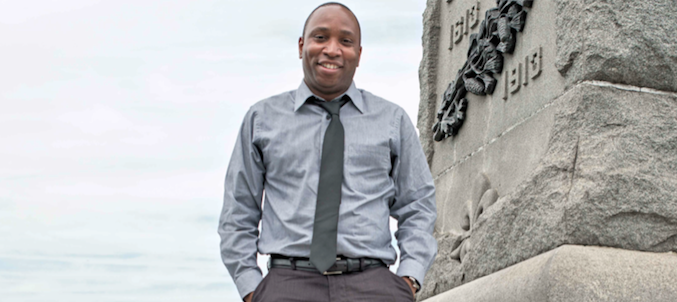Caribbean Union fights civic underrepresentation
By Pricilla Khan
The Caribbean Union of Canada is advocating for increased political engagement and community involvement among black citizens.
The group held an event at City Hall on Nov. 29 in order to raise awareness about opportunities for greater participation in municipal affairs and other spheres of community activity.
About 40 individuals gathered to discuss ways in which black residents and other minorities can connect with city and community services.
While census reports state that visible minorities account for about 23 per cent of the city’s residents, this number is not represented in community associations and committees.
“If approximately 25 per cent (of residents) are visible minorities, ideally you want to see that reflected in public boards. And if it’s not, obviously some level of structural change might be needed in terms of the requirements to join those boards,” said Rawlson King, president of Overbrook Community Association.
According to Ketcia Peters, CEO of the Carribean Union of Canada, members of the organization aim to increase participation in order to give citizens a deeper understanding about what’s going on around them.
The committee works to help black residents become more informed.
“Unlike other cities, the City of Toronto has a human rights of diversity division that looks at their processes in place and that policies are followed in terms of diversity within the city’s work force. That doesn’t exist in the City of Ottawa,” he said.
Ottawa Mayor Jim Watson compared Ottawa to “a mini United Nations,” due to the fact that many students pursuing studies in the city come from various parts of the world.
Watson calls diversity “the new face of Ottawa.”
According to King, recognizing the issue is the first step, but there is a lot more work required to make the change.
King said there have been historical issues with the underrepresentation of visible minorities within city boards and committees at the elected level.
“It’s a gradual process, and it’s one that requires a lot of conversation and collaboration between groups,” said King. “One of the things people have to realize is that in order to have a social license, in order to have people feel the representation they have is legitimate, there really has to be a reflection of the entire community in the elected space and the appointed positions.”
He added: “This was the first event to really kind of spark a conversation and I think it was successful. It was at least the city interfacing it and recognizing the fact that they could do better in terms of diverse representation but the real question of course is, what further actions are they going to take.”

